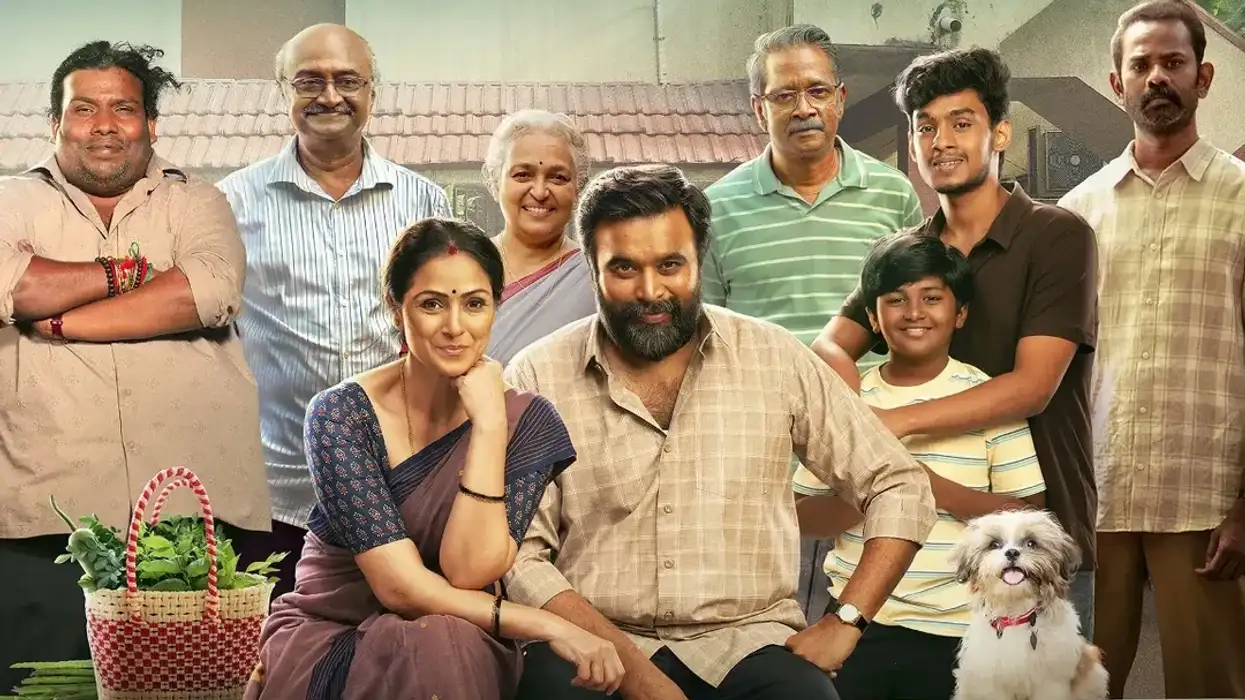Highlights:
- Made on a modest £665,000 (₹7 crore) budget, Tourist Family earned £9.3 million (₹98 crore) worldwide.
- Directed by Abishan Jeevinth, the Tamil comedy-drama gained traction through strong word-of-mouth.
- The film achieved a 1200% return on investment, the highest in Indian cinema for 2025.
- Bollywood biggies like Chhaava and Sitaare Zameen Par recorded lower profit margins despite larger grosses.
A small Tamil film with no big promotions has quietly taken over 2025’s box office success story, not by being the highest grosser, but by delivering the highest profit. Tourist Family, a slice-of-life comedy directed by Abishan Jeevinth, became India’s most profitable film of the year with an unprecedented 1200% return on investment.
Released on 29 April 2025, Tourist Family was made on a modest budget of £665,000 (₹7 crore). With strong reviews and positive audience feedback, it surpassed all expectations, earning £9.3 million (₹98 crore) globally, £6.4 million (₹67 crore) of which came from domestic collections. In contrast, the year’s top-grossing film Chhaava, starring Vicky Kaushal, managed an 800% profit on a £8.5 million (₹89.6 crore) budget.

How did Tourist Family achieve such high profitability?
Unlike typical commercial hits, Tourist Family relied on a grassroots-level build-up. The film earned £2.38 million (₹25 crore) in its first week, a respectable figure for a film with minimal marketing and no major stars. However, the second week saw an even stronger showing with £3 million (₹31.6 crore) added to its tally, fuelled purely by word-of-mouth.
Critics praised its grounded humour, family-centric storytelling, and authentic performances from leads M. Sasikumar, Simran, Mithun Jai Sankar, and Kamalesh Jagan. The film’s appeal to Tamil-speaking families and audiences looking for relatable, light-hearted content ensured sustained theatre footfalls.
- YouTube youtu.be
What made Tourist Family more profitable than Chhaava and other blockbusters?
While Chhaava topped the box office in terms of total earnings with £83.4 million (₹885 crore) worldwide, its high production cost of £8.5 million (₹89.6 crore) meant its profit margin was lower. Akshay Kumar’s Housefull 5, despite earning £30.9 million (₹328 crore), struggled to break even due to a bloated budget. Similarly, Sikandar starring Salman Khan failed to deliver a strong profit.
Even Aamir Khan’s Sitaare Zameen Par, a mid-budget film made for £6 million (₹63 crore), clocked only a 300% profit despite a £26.8 million (₹284 crore) gross. In comparison, Tourist Family’s lean budget and sustained collections allowed it to quietly beat these high-profile films in sheer profitability.
How did regional films perform at the Indian box office in 2025?
If Tourist Family proved one thing, it’s that regional cinema, especially Tamil and Malayalam films, dominated profitability charts in 2025. Malayalam superstar Mohanlal’s Thudarum recorded a 720% profit margin. Tamil fantasy-action flick Dragon and Telugu crowd-pleaser Sankranthiki Vasthunam each secured around 300% profit.
These films, with modest budgets and focused storytelling, appealed to regional audiences and performed steadily without the pressure of pan-India expectations. Their success underscores the growing strength of non-Hindi cinema in India’s entertainment landscape.
Can small films reshape box office trends?
Tourist Family’s success is not just a one-off anomaly; it signals a shift in what audiences value: content, relatability, and honesty over star power and spectacle. With changing viewing habits and increasing cinema literacy among the public, low-budget films with strong emotional cores are increasingly holding their own against Bollywood’s big-budget behemoths.
The 2025 box office has shown that profitability doesn’t always follow the loudest buzz or the biggest names. Sometimes, all it takes is a good story, smart budgeting, and genuine audience connection.





